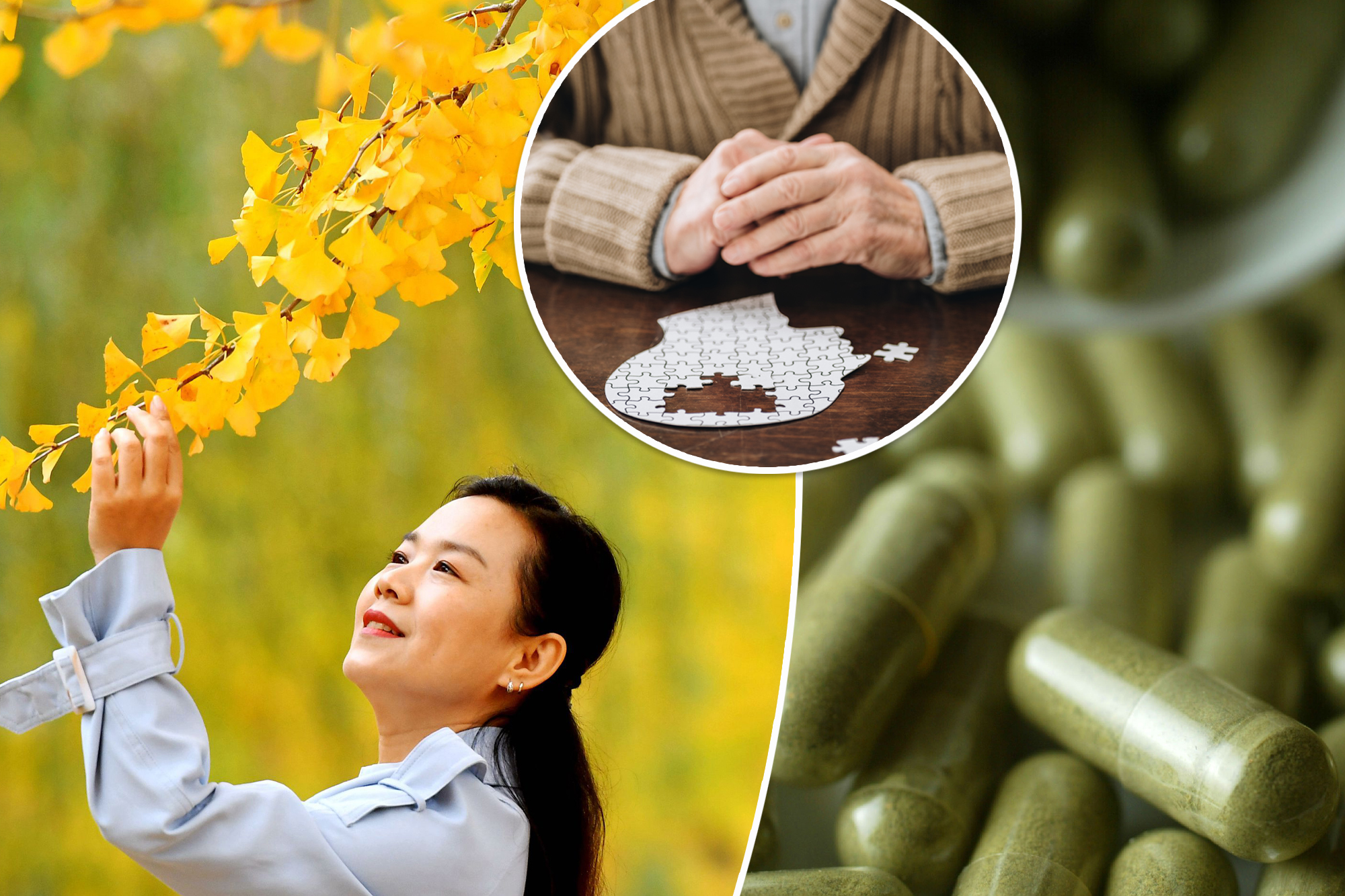
A trust deed?
If you’re looking to improve brain health, a common supplement sold on Amazon and in stores like Walgreens, Walmart, and GNC may help fight symptoms of dementia and Alzheimer’s.
Ginkgo biloba extract – known as “brain herb” – is derived from the dried leaves of the ginkgo biloba tree, which is native to East Asia and one of the oldest living tree species in the world.
Rooted in traditional Chinese medicine, the popular supplement may ease symptoms of dementia by improving cognitive function and memory.
“Extract from the ginkgo biloba tree may increase blood flow to the brain and improve brain functions such as focus and memory in older individuals,” nutritionist and registered dietitian Krutika Nanavati recently told SheFinds.
Ginkgo biloba contains terpenoids, polyphenols, organic acids and flavonoids, which have anti-inflammatory, antioxidant and neuroprotective properties.
Ginkgo has been used to treat poor circulation, asthma, bronchitis and bladder disorders.
EGb 761, a special formulation of ginkgo extract containing 24% flavonoid glycosides and 6% terpene lactones, has shown promise in the treatment of dementia.
Flavonoidal glycosides are known to reduce oxidative stress and inflammation, while terpene lactones have been shown to prevent excessive platelet adhesion.
The thought is that terpenoids improve blood flow to the brain while flavonoid glycosides reduce oxidative stress. Oxidative stress is when there is an imbalance of free radicals and antioxidants, potentially paving the way for the development and progression of dementia, particularly Alzheimer’s.
Research published earlier this year analyzed 15 clinical trials that evaluated the effectiveness of ginkgo and EGb 761 in Alzheimer’s and dementia.
Eleven studies reported that a form of the extract improved cognition, neuropsychiatric symptoms and function in patients with dementia, while the other four studies found no significant difference between the extract and a placebo.
However, the researchers noted that the studies had small sample sizes, varying doses, inconsistent findings and diagnostic challenges.
Recommended doses for ginkgo depend on the condition being treated. A daily dose of 120 to 240 milligrams is common for dementia.
Ginkgo is not for everyone. It can cause stomach upset, headache, dizziness, palpitations and allergic skin reactions.
The supplement – which is sold as liquid extracts, capsules, tablets and as dried leaves for tea – can also interact with other supplements or drugs.
Ginkgo is generally not advised for children, pregnant or nursing women, and people with epilepsy, as it can cause seizures.
#Ginkgo #biloba #supplementation #delay #symptoms #dementia
Image Source : nypost.com